Go Back Go Back Go Back Go Back Go Back Go Back Go Back Go Back Go Back Go Back Go Back Go Back Go Back Go Back
 While we’re on the subject of cuteness, this puppet-filled oddesy of food learning led by grocery store owner Michelle Obama will cheer me out of anything rough. You can watch the whole 1st episode right here!
While we’re on the subject of cuteness, this puppet-filled oddesy of food learning led by grocery store owner Michelle Obama will cheer me out of anything rough. You can watch the whole 1st episode right here!
From The New Yorker:
“The very sound of meep is cheering,” the lexicographer Erin McKean wrote, in 2009, in a column in the Boston Globe. (She was commenting on an odd case—a Massachusetts high-school principal, distressed by his students’ faddish obsession with the nonsense sound, had recently banned all use of “meep,” on pain of suspension—but that’s a story for another day.) Even more delightful, I’d argue, is the pairing of an expressive meeper with a partner who speaks normally, and who, moreover, understands her friend’s musical meeps as fluent speech. Waffles and Mochi, the felt-and-fur puppets of the new Netflix children’s series of the same name, are such a pair. Two food-obsessed best friends (who also both happen to be food, although on her mother’s side Waffles is a yeti), they are a talker and meeper in the grand tradition of the Muppets Dr. Bunsen Honeydew and his assistant, Beaker, and of “Strindberg and Helium,” an early-two-thousands animated series that paired the morose Swedish playwright with a tiny pink balloon of incorrigible cheerfulness, to whom Mochi—also tiny, also pink, also conversing in whistle register—bears an uncanny resemblance. Waffles, though, is not Strindbergian in the least (and thank goodness, considering she’s the protagonist of a show aimed primarily at preschoolers)—she’s sunny, curious, and open-hearted, an émigré from the Land of Frozen Food who, after stowing away in a delivery truck, ends up at a grocery store owned by the friendly Mrs. O., an avid gardener who’s ready to help the duo embark on globe-spanning adventures to learn about tomatoes, mushrooms, potatoes, eggs, and other everyday culinary miracles.
In 2018, Mrs. O.—under her full name, Michelle Obama—signed a development deal with Netflix along with her husband, the former President. A year later, the Obamas’ production company, Higher Ground, announced a slate of shows in the works, among them a half-hour kids’ series titled “Listen to Your Vegetables & Eat Your Parents.” At some point between then and now, that spoonerism was downgraded from title to rallying cry—in each episode, as Waffles and Mochi take off in a magic flying shopping cart to explore a special ingredient, Intercommy the intercom calls it out as a valedictory fanfare—but its spirit of childlike anarchy remains. (The show is created by Erika Thormahlen and Jeremy Konner.) The laws of “Waffles + Mochi” ’s puppet-human universe were written decades ago, by programs such as “The Muppet Show” and “Pee-wee’s Playhouse”: everything is alive, except when it isn’t; everything alive is a friend, even when it’s an enemy; and people are going to break into song occasionally, but it’s cool, because the songs are really, really good.
“What a beautiful basket of clown noses!” Waffles (performed and voiced by the puppeteer Michelle Zamora) exclaims, admiring a pile of shiny red orbs, early in the show’s first episode. Mrs. O. explains that, actually, these are tomatoes; Waffles and Mochi’s first task at the grocery is to decide where in the store they ought to go. The duo hop aboard MagiCart, which whisks them to Oakland, California, home of Samin Nosrat, the chef and a fellow Netflix star. In Nosrat’s sunny garden, they make a dish of pasta with “tomato candy”—roasted cherry tomatoes—while Nosrat explains that, because tomatoes have seeds on the inside, they’re technically fruits. After a musical interlude, featuring an animated tomato in a Sia wig (voiced, it turns out, by Sia), Waffles and Mochi visit a pizza shop, where they learn that chefs often treat tomatoes like a vegetable. Perhaps sensing that Waffles is teetering on the edge of an ontological abyss, MagiCart next ferries the friends to see the chef José Andrés, who explains, in a kid-friendly way, that sometimes categories are entirely meaningless. “A tomato can be a fruit and a vegetable?” Waffles asks. “Yes,” Andrés says, “and you would be right in both ways.”
“Waffles + Mochi” is global in its point of view: the foods and people filmed in Italy, Peru, and Japan are treated as no more exotic than those in California, from a dad in Kyoto making onigiri with his son to a Peruvian vendor selling mazamorra morada, a purple-corn pudding. (The international segments are dubbed in English, which is frustrating to me, but certainly much friendlier to little viewers who might not be able to follow subtitles.) While Waffles might sometimes be unfamiliar with a dish or an ingredient, or even slightly afraid of it (yeah, mushrooms are pretty weird!), she’s never disgusted. When she and Mochi try new things, they make a point of saying out loud what they’re experiencing: not just tastes but textures, too. When the friends find themselves at the counter of Kichi Kichi Omurice, a Kyoto restaurant famous for a dish of seasoned rice topped with a custard-soft omelette, Waffles is elated, but Mochi meeps ambiguously. “Mochi likes the taste, but not the texture,” Waffles interprets, and an entire generation of tiny food critics is born.
sound of meep
Netflix Netflix Netflix Netflix Netflix
Netflix Netflix Netflix Netflix Netflix Netflix
Netflix Netflix Netflix Netflix
Netflix Netflix Netflix Netflix Netflix
WHAT
tv show
WHEN
now streaming






